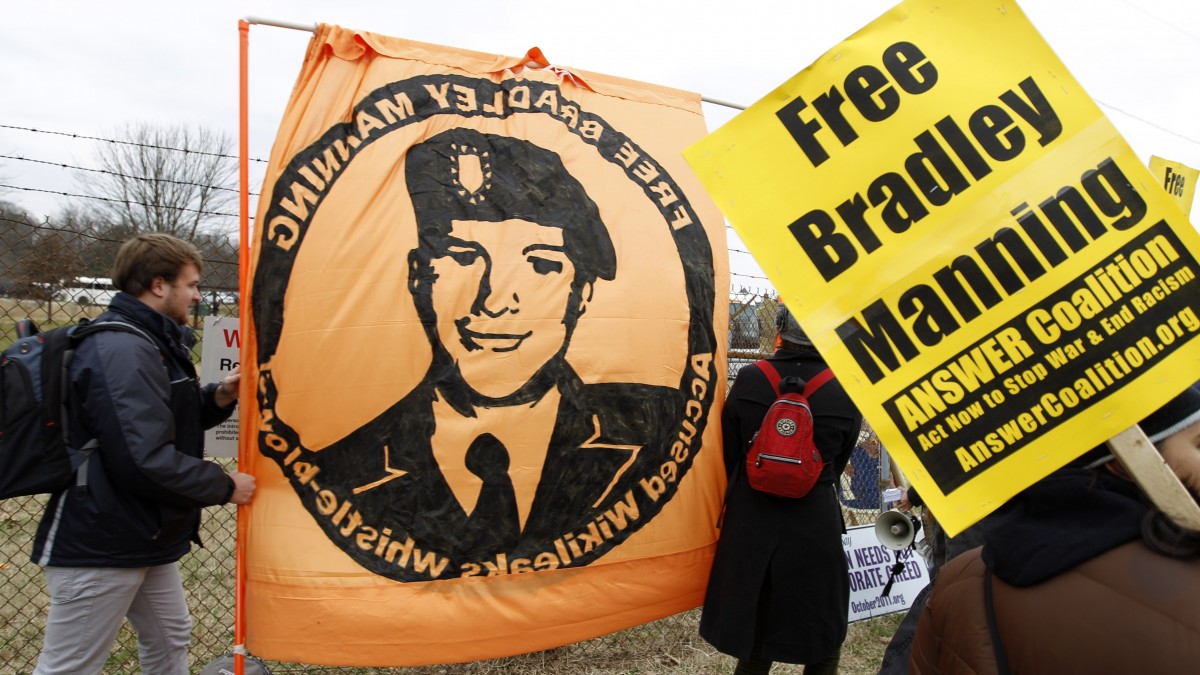(MintPress) – 2012 was another year, sadly marked by U.S. militarism in Afghanistan, economic crisis in Europe and a seemingly uncontrollable war in Syria that has taken the lives of more than 45,000. As American lawmakers debate the fiscal cliff myopically, a morose feeling hangs over the end of the year for many Americans.
There are still advocates for peace and social justice, carrying forth their fight by speaking truth to power and illuminating a new path to carry forward in 2013. When once prestigious prizes like the Nobel Peace Prize begin giving awards to wartime presidents and failed economic policies, the international community may be left to wonder, where are all the true peacemakers and activists?
Julian Assange
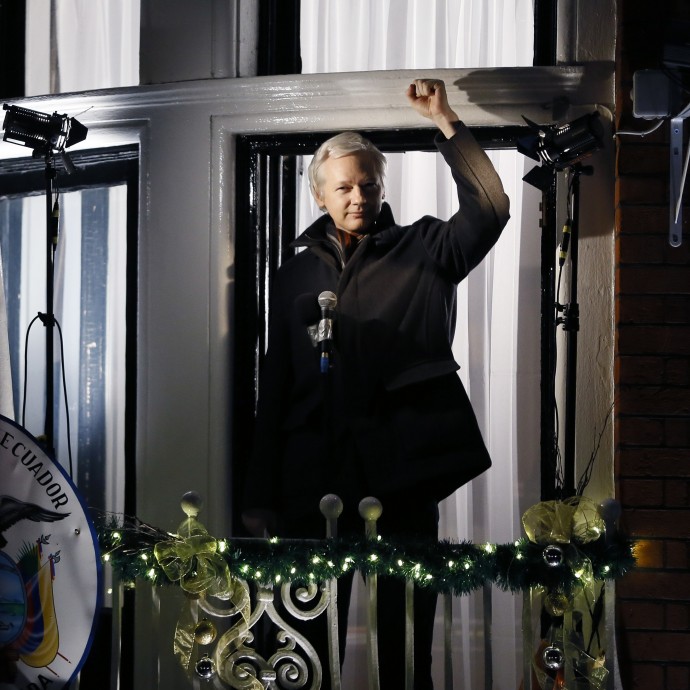 Julian Assange, the renegade WikiLeaks founder, remains confined to the Ecuadorian Embassy in London, unable to flee to Quito where he has been granted asylum. Despite attacks from conservative lawmakers in the U.S., WikiLeaks has carried forth, releasing documents and revealing corruption at high levels of government.
Julian Assange, the renegade WikiLeaks founder, remains confined to the Ecuadorian Embassy in London, unable to flee to Quito where he has been granted asylum. Despite attacks from conservative lawmakers in the U.S., WikiLeaks has carried forth, releasing documents and revealing corruption at high levels of government.
One week after announcing his run for the Australian Senate, Assange announced plans to release more than 1 million classified documents in 2013, saying that the documents would affect “every country on earth.”
Despite being confined to the Ecuadorian Embassy, Assange and the WikiLeaks operation carried forward in 2012 exposing crimes, corruption and pushing the limits of free speech advocacy.
“Collateral Murder,” a video showing the U.S. military shooting 11 unarmed Iraqi civilians and members of the international media, helped put WikiLeaks on the map when released in 2007. Since then, the video has gone viral, accumulating more than 13 million views.
Bradley Manning
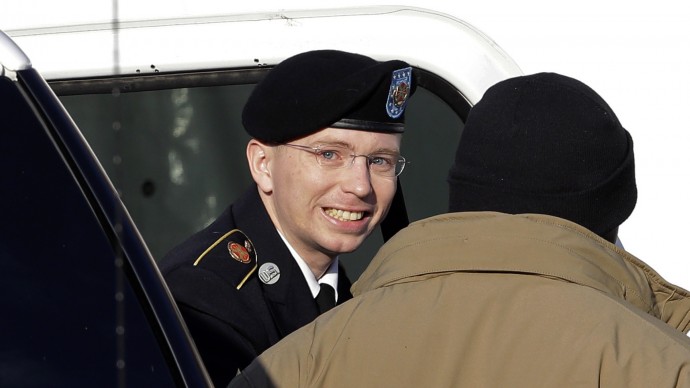
Bradley Manning, the man responsible for revealing that video, along with more than 250,000 classified cables, has been held in solitary confinement for nine months. The 24-year-old intelligence analyst is charged with 22 offenses, including aiding the enemy, which carries a maximum penalty of life in prison.
Manning, a U.S. citizen, has been denied his basic due process rights and has been held in inhumane conditions. During the pre-trial hearing earlier this month, David Coombs, Manning’s lawyer, commented in court, saying, “Being watched or viewed almost as a zoo animal for that period of time has to weigh on somebody’s psyche.”
The video release came at a time when public opposition to the Iraq war was mounting. More than 100,000 innocent Iraqi civilians were killed during the war 2003-2011. Trying to protect civilians, it seems, is enough to be tried for war crimes.
Now, staying true to his belief in government transparency Manning has waited through months of inhumane imprisonment for his beliefs, a true testament to the power one individual has in making a government confront previous crimes.
Cheri Honkala
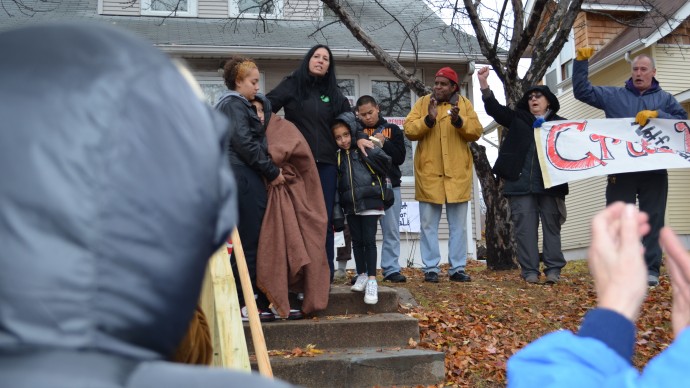
As the Occupy Homes group carries on through the Minnesota winter, reclaiming one house at a time, individual voices continue to draw attention to the much larger housing crisis that threatens to put 1 million American families on the street in 2013. With 3 million already homeless, the foreclosure epidemic could reach epic proportions in the coming year.
Long before Occupy, Cheri Honkala, originally from Minnesota, found herself a housing advocate out of necessity. A homeless teenage mother, Honkala found herself on the streets on a cold winter night and decided to take up residence in a vacant building, knowing that the heat was still on.
Since then, Honkala has devoted her life’s work to homeless anti-poverty programs. Honkala ran for the vice presidency as the first formerly homeless candidate to run for the highest office in the U.S. She has been arrested more than 200 times during her 25-year career working in anti-poverty campaigns including the Kensington Welfare Rights Program.
“I have been working on this for a long time. We are tired of banks throwing families out of their homes,” said Honkala in October. “We are anticipating 1 million more families who will face home foreclosure. If they chose to stay in their homes, what could the banks do?”
Honkala, the vice presidential nominee for the Green Party was arrested with Jill Stein on Oct. 17 while trying to enter the presidential debates at Hofstra University. The two activists turned political candidates were reportedly shackled to metal chairs for eight hours before they were released.
The Green Party gathered fewer than 500,000 votes, less than 1 percent of the popular vote. However, Honkala carries forth her advocacy as one of the few voices demanding that Washington look at the homeless issue for what it is — a domestic crisis rather than a nuisance to brush aside.
Janet Wilson
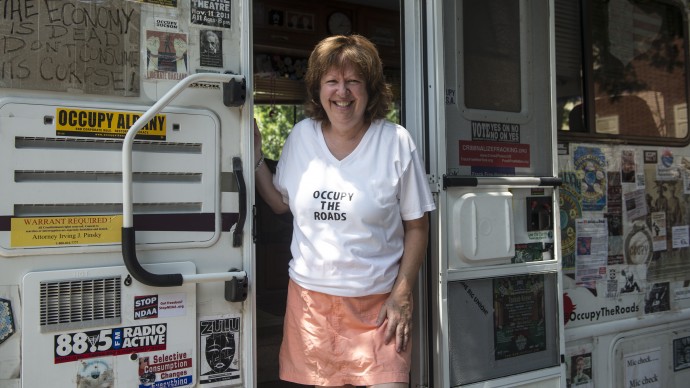
Janet Wilson may not be a household name across the U.S., but she has taken her advocacy for social justice “on the road” as a traveling Occupy activist. Although not a lifelong activist, Wilson was inspired by the rise of the Occupy movement in late 2011.
Wilson joined the Occupy the Roads RV, long after encampments were raided by police. She continues to tour long after the decline of public occupations, meeting activists from across the country and learning about all the issues.
“Do we care about money in politics? Do we care about education, that Monsanto has GMO food that’s not labeled? Do we care about fracking? How do you say which is a priority,” said Wilson.
David Cobb
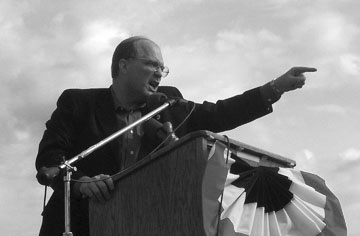
Others, like David Cobb of Move to Amend, have focused on the issue of money in politics following the disastrous 2010 Citizens United decision. Cobb has been on barnstorms across America to draw attention to the corrupting influence of corporate money in politics.
“We are calling for an amendment to the U.S. Constitution to unequivocally state that inalienable rights belong to human beings only and that money is not a form of protected free speech under the First Amendment and can be regulated in political campaigns,” said Cobb in a MintPress statement.
Cobb is confident that restoring American Democracy can unite people of different political affiliations.
“We are literally able to bring together the basic critique of Occupy and the basic critique of the tea party. There is a recognition that Wall Street and the big bankers dominate party politics in Washington. We are uniting people under the idea of creating a true democratic republic,” said Cobb.
Cobb traveled across the U.S. this summer in a Move to Amend “Barnstorming tour,” meeting with supporters and trying to gather new activists advocating for an end to corporate personhood. Thus far, Move to Amend has collected more than 253,000 signatures, due largely to the advocacy of Cobb.
Voices for change
These few, disparate voices could not have come forth without considerable public support. The unidentified activists, peacemakers and community organizers continue daily to carry forth the most important work that goes unseen but remains vital in the push to make U.S. policy more human, democratic and peaceful.
The issues appear overwhelming, but the individuals carrying forth the fight for positive social change show that progress is possible and the work is incumbent upon all Americans who care deeply about the direction of their country.


